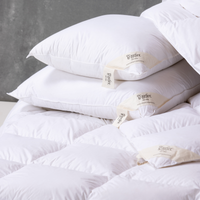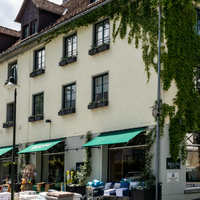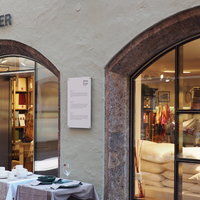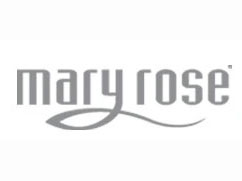Sustainability at Mary Rose® / Paptex
At Mary Rose® and Tyrler, sustainability begins with organic raw materials, continues with socially fair working conditions, compliance with environmental and social standards in further processing and the non-toxic degradability of our products. Sustainable management requires networked thinking and, for us, means taking responsibility for changing something in the system.

ENVIRONMENT
SOCIAL
Fair Wear FoundationBEYOND TEXTILES
CERTIFICATIONS &LABELS
DOCUMENTS &REPORTS
Environment
- Our procurement policy
- Biodegradable materials
- Insight into our projects
Social
- Fair Wear Foundation
- Social Report
- Insight into our projects
Beyond Textiles
- Regional cooperation
- Living tradition
- Preserving history
- Insight into our projects
Certifications & Labels
- GOTS
- Cradle to Cradle
- Fair Wear Foundation
- GRS
- Vegan
- ECOPROFIT
Documents & Reports
- Current certificates
- Code of Conduct
- Policies
- Test reports
- etc.

Environment
The textile industry is one of the world's most important economic sectors, but in recent decades it has increasingly become the focus of public attention due to its negative impact on our environment. The manufacture of textiles is a highly complex process involving a wide range of raw materials and production methods. It is closely linked to environmental problems such as water pollution, resource consumption and the global problem of waste.
We therefore see our greatest responsibility as being the preservation of our environment and the conservation of natural resources. We are actively committed to protecting the environment and promoting sustainable practices.
This is reflected in all our activities, from the procurement of materials and the production of our products to our commitment to renewable energy and the use of environmentally friendly processes.
Insight into our projects

Social
In a world where global supply chains and working conditions are becoming increasingly transparent, ethical and social issues within the industry are becoming more and more of a focus. The textile industry employs millions of people worldwide. Unfortunately, these workers are often exposed to a wide range of challenges, from inadequate wages, unsafe and dangerous working conditions to discrimination and an exploitative working time model.
We attach great importance to ensuring that our textiles are produced under fair conditions. As a globally trading home textiles company with producers in Turkey and China, it is therefore essential for us to have an organization like Fair Wear at our side. With their strict guidelines and audits, they are committed to better working conditions in the textile industry.
Apart from this, it is also very important to us to visit the production facilities on site and actively work with our producers on various social compliance issues, but our local employees must not miss out either! We reward the valuable work of our employees in Dornbirn and Innsbruck with benefits such as job bikes, flexible working hours and the opportunity to work remotely.

Beyond Textiles
Our contribution beyond textiles
Textile production and its connection to culture is a multi-layered and important element of our society. It reflects cultural values and traditions and contributes to cultural diversity and identity. This imprint of our culture, our society, also accompanies us in our heart projects, in which we can live sustainability outside our economic business practices through traditional processes or the preservation of historical cultural assets.
Our standards

GOTS

Cradle to Cradle

Fair Wear Foundation

amfori

Vegan

Ecoprofit

Global Recycle
Standard

GOTS
Cradle to Cradle
Our Cradle to Cradle certified products are made from organic cotton and have been awarded the Cradle to Cradle Certified® GOLD certificate. From the organic cotton fabric to the sewing thread, the woven and product label and the color pigments - everything is completely biodegradable and can be returned to the biological cycle without leaving any residue.
The focus is on:
- Material health
- Material cycle
- Renewable energy and carbon management
- Water quality
- Social fairness
Click here for scientific evidence that our Cradle to Cradle products are suitable for the biological cycle.
Want to find out more about Cradle to Cradle? Visit the website www.c2ccertified.org or ask our competent team.


Fair Wear
The Fair Wear Foundation (FWF for short) is an organization that aims to improve working conditions in the textile and clothing industry. The foundation checks whether the companies that have joined implement the FWF guidelines in their production. The organization was founded in 1999 and since then the number of member companies has been steadily increasing. We are proud to be part of it and to be the first company from the home textiles sector to take this step. Together with the other members, we are working to spread awareness of fairness in production and supply. This awareness includes, among other things, the following points: Limitation of working hours, free choice of workplace, no discrimination, safe and healthy working conditions and payment of a living wage. We are 100% behind this organization and are working hard to ensure that fairness is no longer the exception but the norm in this and other industries. You can find out more about Fair Wear at www.fairwear.org.amfori - Compliance with social standards
PAPTEX GmbH & Co KG (Wholesale Mary Rose), undertakes as a amfori-member for compliance with social standards in the factories that manufacture our products.The aim is to continuously and sustainably improve working conditions in production facilities outside of Europe and to ensure that legal regulations are adhered to. To this end, amfori has developed a code of conduct to which its members are committed.
Compliance with these provisions and the implementation of agreed improvement measures are regularly monitored by external auditing institutes.


Vegan
Textiles are often NOT vegan - Would you have known that? Our Cradle to Cradle certified® GOLD Products are - in contrast to many other textiles - vegan. This is because textiles are generally rarely completely free of materials of animal origin, as animal fats, uric acid, etc. are often added to them as processing aids during production. As such processing aids usually do not have to be declared, the impression is created that textiles are vegan. We do not use any materials of animal origin in our Cradle to Cradle products and have therefore been awarded the international V-Label.Ecoprofit
Our company has always set itself the goal of integrating sustainability into all our business activities. We firmly believe that companies have a responsibility towards the environment and society and that sustainability should be an integral part of our business activities.
The Ecoprofit environmental programme aims to reduce operational emissions, conserve natural resources, increase eco-efficiency and raise awareness of the environment and sustainability within the company.
The site-specific Ecoprofit certification enabled us to further strengthen and refine our sustainability concept through technical and organizational measures. By forming an internal environmental team, we now also benefit from the input of our employees, whose ecological awareness has been heightened during the process.
Attention window with video opens

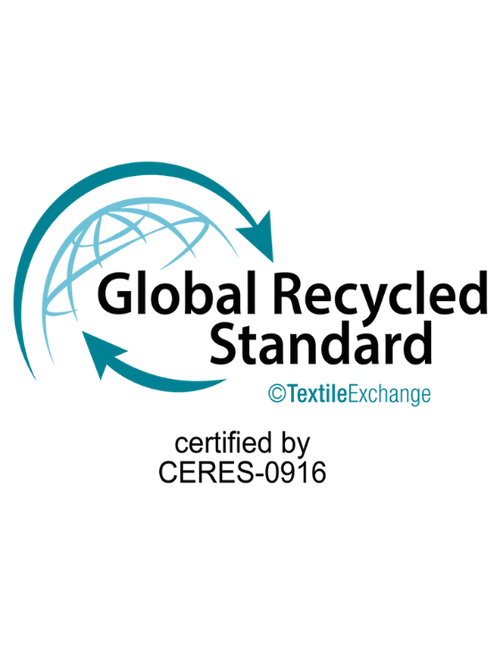
global Recycle Standard
Durability, ecological home textiles production and the consideration of socially fair standards - this is what we are committed to: Being awarded the GRS not only shows that we are on the right track, but also that our efforts, especially in the area of social fairness and our standards in environmentally friendly production, do not go unseen.
 Fast delivery
Fast delivery Co2-neutral shipping
Co2-neutral shipping Sustainable production
Sustainable production